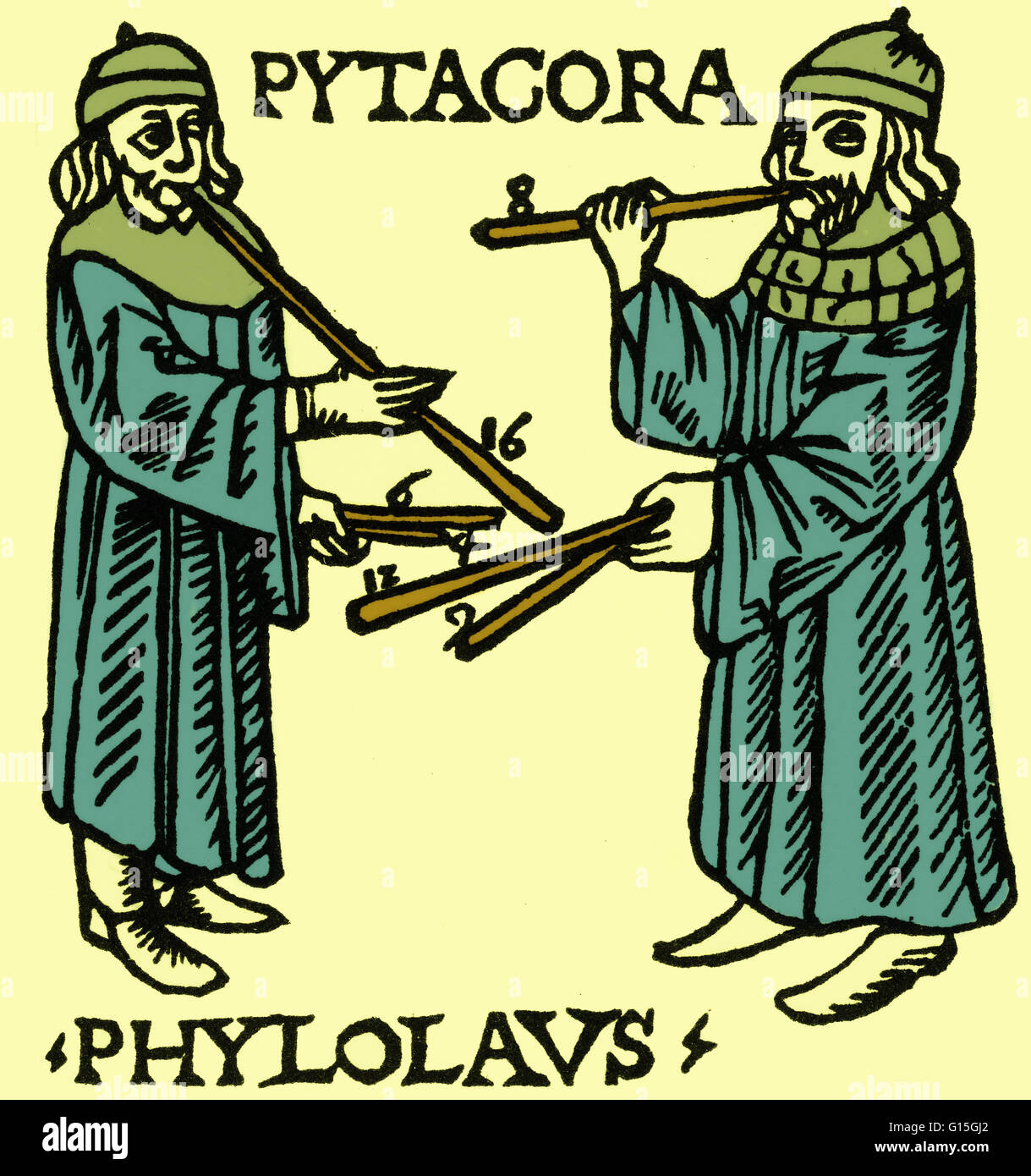Music Theory in Ancient Greece
Aristoxenus’ “Elements of Harmony”In addition to creating carefully defined and distinct forms and styles of music, the Ancient Greeks developed a tremendously intricate and complex music theory system. The technical aspects of Ancient Greek music theory have been discussed in great detail in works both from antiquity and modern times, but their general effect on all but the most ardent Greek musicologists is one of confusion and difficulty. Although we will not discuss Greek music theory in detail, a background is necessary to fully appreciate the works of Plato and Aristotle in regards to music.

One of the most important music theorists in Ancient Greece was Aristoxenus, the son of a professional musician from Tarentum. Aristoxenus studied with Aristotle in Athens and applied his logical techniques to both the art and science of music, leaving several collections of writings from the 4th century BCE. Most texts on music theory through Roman times are based on Aristoxenus’ findings, which are a summation of the advanced musical language of the Greeks.
A work dating between the 2nd and 4th centuries CE, the Harmonic Introduction attributed to Cleonides, is a “kind of epitome” of Aristoxenus’ works, according to Thomas Mathiesen. In it, Cleonides recognizes seven important factors in the science of harmonics: notes, intervals, genera, scales, tonoi, modulation, and melic composition. Notes are obviously defined pitches, as they are today, and intervals are the distances between notes. Genera were groups of four notes, each group having a particular, distinct sound that was employed in Ancient Greek compositions. Scales are groups of notes forming a logical unit that often creates the basis for a composition. The tonoi, also called the harmoniai, can be thought of as a “key” in Ancient Greek music. These keys are not like our modern keys, but are entire modes and styles of the music, such as the Dorian, Phrygian, and Lydian. The tonos of a work describes not only the set of notes present in a musical work (or a portion thereof), but also the work’s character, or ethos. The word tonos is very confusing in the study of Greek music because, as the 4th century CE neo-Platonist philosopher Aristides Quintilianus writes, “We call three things tonos: a pitch in the precise sense; a certain magnitude of sound; …or a scalar mode.” Such multiple uses of technical terms are unfortunately very common for ancient music scholars. Modulation, as Cleonides describes it, is the change from one scale or tonos to another. Finally the overall system of composing proper melodies according to the rules set out in Greek harmonic theory.

The most important of these terms for studying the musical references of the great philosophers Plato and Aristotle are the harmoniai and the ethos. The harmoniai each have a particular sound that can be attributed to a certain type of music as, for example, the Phrygian harmoniai is connected to the excited music of the dithyramb. The terms harmoniai and mode are basically equivalent in this context. Ethos is the character of music that is felt by the listeners, such as uplifting or lamenting. These concepts comprise the essential background information needed to understand the many references that Plato and Aristotle make to the music of their times.

Related Post
A shocking documentary proves that mermaids do exist
SHOCKING Revelation: Thuya, Mother of Queen Tiye, Was the Grandmother of Akhenaten and Tutankhamun—What Ancient Egyptian Secrets Did She Leave Behind?
Breaking News: Astonishing Discoveries at Karahan Tepe Confirm an Extraterrestrial Civilization is Hiding on Earth, and NO ONE Knows!
Breaking News: Researchers FINALLY Discover U.S. Navy Flight 19 After 75 Years Lost in the Bermuda Triangle!
NASA’s Secret Investigation: Uncovering the Astonishing Mystery of the UFO Crash on the Mountain!
Explosive UFO Docs LEAKED: Startling Proof That Aliens Ruled Ancient Egypt!
